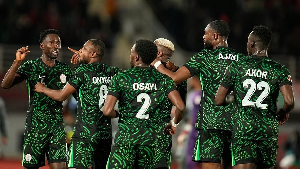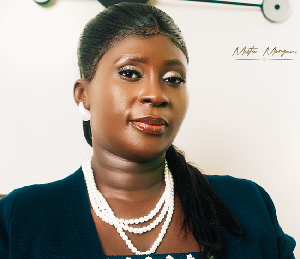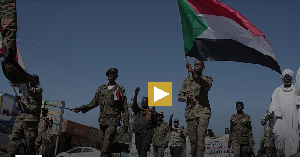The Mobitel GSM launch seems to have had its share of troubles. Calling through to Spacephone has continued over the past year to be an exercise in futility and frustration to customers, and loss of revenue to telecom operators, although the launching of the new satellite phone seems to have brightened the horizon somewhat. The activities of Capital Telecom appear more covert than overt.
According to President Kufour of Ghana, Westell is battling with a $71 million penalty by gravely defaulting in a contractual agreement, which she is required by law to pay. Lashing out and stirring up the waters are the “very negative remarks” made by the US Assistant Secretary of Commerce, Mr William Henry Lash III, on some FM stations during his recent visit to the country.
The 40% quality of service of Ghana Telecom is set to depreciate further by half, to a further 20% quality of service with the public announcement of its exotic, enhanced AIN (Advanced Intelligent Network) Services. Ghana Telecom cannot even successfully and efficiently manage normal telephony, and yet they wish to introduce Advanced Intelligent Services, without any extra expansion of the network, which will further stretch an overstretched network and further reduce quality of service.
Ghana Telecom should focus on understanding how modern telecommunications, such as the Internet, affect their network and apply DSL (Digital Subscriber Line) and other technologies where possible to improve the quality of service, rather than further overloading an already obviously severely overloaded network.
Talking about quality of service, the NCA (National Communications Authority), with the Minister as the temporary Board Chairman for over a year now, seem to be complete strangers to the concept. As far as quality of service is concerned, the NCA appear emasculated and comatose, and indeed unable to evolve quickly enough to the rapidly changing telecommunications environment. Consumers would appreciate the NCA sitting up and giving Ghanaians good quality of service instead of contenting themselves with showing outdated ‘adverts’ about themselves on television which have absolutely no relevance to the poor and ever-worsening quality of telecommunications service outside of the television. They must rely on data that they themselves device means to collect; instead of relying on the operators to provide the data which could be used in evidence against them (the operators).
There seems to be no information from the Ministry about the impending investor in Ghana Telecom, and the whole exercise continues to be shrouded in a thick black impenetrable cloak of mystique and intrigue. There doesn’t seem to be any concept at all, of migrating to modern IP (Internet Protocol) Networks, which can actually support the internet better than voice networks. Also conspicuously absent is the promotion of competition in the telecoms sector. The word incompetent actually means ‘lack of competition’, and so if one is serious about quality of service, promoting competition must be high on the agenda; and not to run away from competition with flimsy excuses such from the Honourable Minister such as, ‘competition means more interconnection settlements, and generally more work for the NCA’. All of this runs contrary to the press conference at the Ministry of Information on th! e 20th February 2002, where Mr. Owusu-Adjapong stated that, "exclusivity in Ghana is deemed to have come to an end as at the close of work on the 19th February 2002. This means that Government will encourage fair competition in the Telecom Sector."
Meanwhile, to worsen matters, contrary to an earlier report, Telekom Malaysia, instead of giving up it’s 30% shares in Ghana Telecom, is actually reportedly taking Ghana Telecom to court over the issue of Board Membership. No one including the Minister can explain why some members of Malaysia Telekom still come to work on a regular basis, after their contract has expired. It is hoped that no track-covering is taking place.
GISPA, (Ghana Internet Service Providers Association), though having been in existence for over a year, with the sole aim of coming together to improve Internet Access in Ghana, is still in the talk stage.
The Ministry seems to be grappling with what VOIP (Voice over Internet Protocol) is all about, without much interaction with the Ghanaian professionals.
Barely a fortnight ago, at the Busy Internet meeting, the Honourable Minister for Telecommunications, Mr Felix Owusu Agyapong, lashed out at ICT Ghanaian professionals, accusing them of being unprofessional. The irony of the entire situation is that the key driver of the ICT policy is actually the ICT advisor to the Minister. With the Minister of Communication’s outburst, he has clearly indicated that he does not communicate with his ICT advisor frequently enough. Fortunately, the Minister admitted in the same forum that he really could not understand what ICT was all about; neither it’s relevance, nor its language. The Minister’s Busy Internet outburst is typical of the way that he has handled Ghanaian Telecoms and ICT professionals. AITEC 2002 is still waiting for the Honourable Ministers response to their resolution.
In the midst of all of these unpredictable rising tides, there is one thing telecoms and ICT in Ghana need desperately, and that is a relevant, contemporary, living, dynamic broadband optical vision. This at once brings to mind the ICT & Telecoms Policy document. It is this document that will provide the desperately needed vision for the future. But where is it? Where is our eyesight? And more importantly, the question of who owns this document lies buried deep within the blindness of murky dark waters, driven relentlessly to and fro by strong undercurrents of nothingness.















